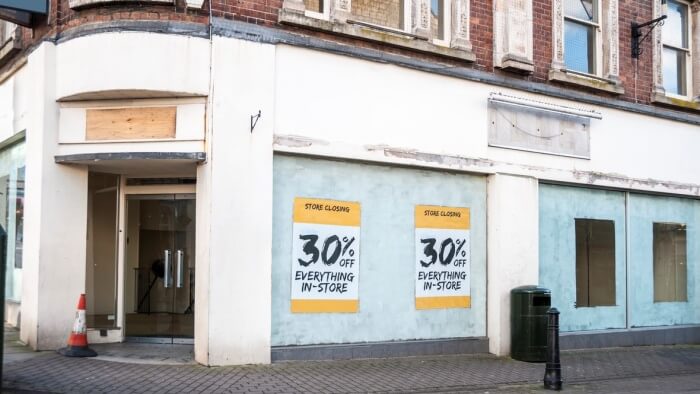Policy-makers tend to focus on large corporates and fast-growth 'scale-ups' - but what about the rest of us?
Why Don't More Small Businesses Survive?
Policy-makers tend to focus on large corporates and fast-growth 'scale-ups' - but what about the rest of us?

In my role as Chair of the Institute of Economic Development (IED) I am passionate about championing wealth creation, especially through supporting the creation of sustainable new businesses, an area of focus that is absolutely critical to the UK’s economic development.
There is little doubt that the UK is borderline obsessed with discussion about start-ups and scale-ups – totally overlooking by far the majority of businesses, and their economic potential – that don’t fall into either category. I’m shocked but unsurprised by the failure rate of UK businesses, where only 60% survive to three years, and within micro businesses and disadvantaged areas that failure is a lot higher.
In my day job, the YTKO Group is focused on helping SMEs to grow and scale and we’ve proved that business support can be significantly improved. In our public sector work, we run a number of services including Outset, Enterprising Women and Get Set for Growth, have supported 15,000 businesses over the last decade and created three new jobs each day for the last five years. The work of many IED members is focused on supporting businesses within their locality to foster regional economic growth.
The UK is definitely one of the best places to start a business but the point is, will they survive and thrive? Most SMEs are very small, with 96% in the UK having fewer than nine staff and 75% sole traders, so we must have services that support businesses up the growth ladder if they have that ambition – and indeed many do.
For stronger local economies and wealth creation, we need to improve business survival rates and provide much better education about what small businesses need to reach sustainability and subsequently at each stage of the journey. It’s easier for government to talk to one GlaxoSmithKlein than 5,000 small businesses, but a thriving and successful entrepreneurial economy is vital, and we need to do more to build a base of significant world class companies.
The key challenges we consistently come across are access to customers and access to finance. Finance can be challenging as start-up is high risk but if, for example, you’ve been rejected by the bank, one option is the Start-up Loans scheme. Alternative finance is another option, either crowd funding or peer-to-peer lending, asset finance or discounting.
In equity finance, angels fill a vital role in financing growth-potential new businesses, taking on the risk when it is at its highest in return for some equity. There needs to be greater understanding by new entrepreneurs of what angels look for, what they will invest in, and valuations need to be realistic. There is no shortage of finance, but there are a lot of unviable propositions. In my experience a lot of start-ups don’t know about all the types of funding or if they are appropriate.
There is also a significant need for new businesses to be much better prepared, before they start, about the timescales and costs of securing new customers. Entrepreneurs rarely plan to invest enough in marketing, sales and business development and quickly run out of cash.
The Government must do more to increase awareness on these crucial matters. We must get better at educating new start-ups on the realities of commercial success, and to improve the quality of publicly-funded business support.
SMEs are the lifeblood of the economy – over five million in total in the UK, 99% of all private businesses, providing 60% of all private sector employment – yet we need to seriously look at our focus on small businesses and ensure we are effectively supporting every individual who may want to start up and even more, help those who are ambitious to grow, because I’m convinced we’ve haven’t got that right.
Women are hugely under-represented in business, where at best four out of five are owned by men. That’s a massive source of untapped economic potential, as not enough women are starting businesses and therefore there are fewer growing them. Generally women choose a good quality of life and don’t want to work 18-hour days, have less capital, and can be more cautious around risk.
Women don’t need ‘special’ treatment, they just respond better to a different and more tailored approach – in YTKO’s Outset programme, well over 50% of the clients starting new businesses are women, and our GetSet services for established SMEs also achieve the same inclusive balance.
Business support organisations need to be assessed on their level of engagement with female entrepreneurs. Questions should then be asked if less than half of their client base is not made up of female-led businesses.
All publicly funded business support programmes should have mandatory targets for engaging and supporting equal numbers of men and women and for engaging and supporting BME individuals or businesses to at least the same percentage as their presence in local populations.
Inclusive and balanced growth.
Bev Hurley is Chair of the Institute of Economic Development and Group Chief Executive of the YTKO Group.
Thanks for signing up to Minutehack alerts.
Brilliant editorials heading your way soon.
Okay, Thanks!




